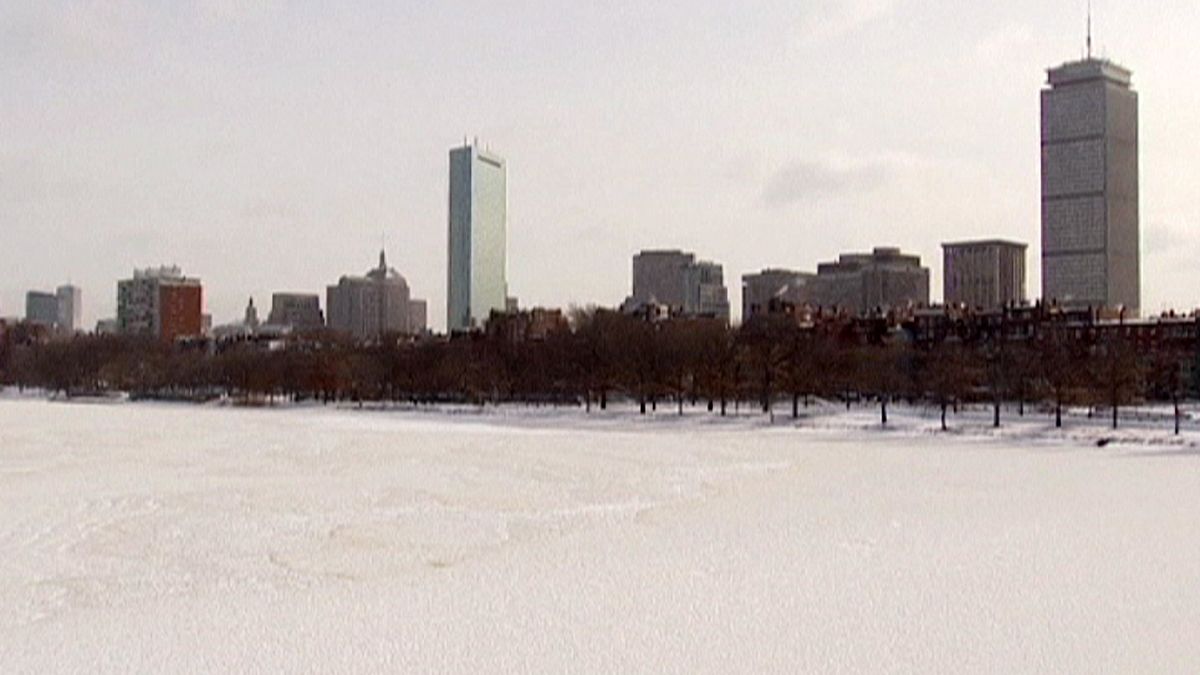Ten metre waves assaulted Europe’s Atlantic coast this winter, battering Portugal, France and Spain, taking lives, destroying property and eroding the shore.
The same winter brought brutal freezing to the United States, paralysing the economy for weeks, even in southeastern states where the weather is normally forgiving.
Australia broke heat records, meanwhile, suffering terrible forest fires. Computer simulations with mountains of data repeatedly drew causal links between the punishing natural phenomena and extended human activity, the United Nations Intergovernmental Panel on Climate Change, IPCC, said in its latest report.
Chairman Rajendra Pachauri presented the findings in Yokohama, Japan: “We have assessed impacts as they are happening, and impacts on natural and human systems on all continents and oceans. And I would like to emphasise that nobody on this planet is going to be untouched by the impacts of climate change.”
The health of many will be affected. Agricultural yields will be affected. Drought will come more often. The report forecasts a global average temperature rise of between 0.3 degrees Celsius and 4.8 degrees by the end of this century. Some 200 countries have pledged to make an effort to limit the rise to two degrees, but the task promises to be Herculean.
Marc Levy, a political scientist at Columbia University, who has worked closely with the US government and the UN, said: “Many of the measures that are required to cope effectively with climate change are going to be difficult. They’re going to require that countries engage in broad-based dialogue with their citizens and interest groups, that they come up with a cohesive plan for taking action and they dedicate resources to achieving success.”
The IPCC report suggests that governments not wait for big agreements on climate change mitigation efforts but rather that they prepare for the impacts of changes. For instance, Britain can be sure it will have more frequent serious flooding, such as it experienced this winter. The panel said societies will need to adapt to become more resilient.
To discuss these issues, euronews spoke with the lead author of the report by the United Nations Intergovernmental Panel on Climate Change, Daniela Schmidt.
Paul McDowell, euronews: “Daniela Schmidt, the report is detailed and comprehensive. How much do you feel it will finally put an end to the many doubts over climate change and its effects?”
Schmidt: “What we are looking at is the implications, so the impacts, but also the risks for people all over the world.”
euronews: “But surely, it’s a simple fact that climate has always changed and it will always change.”
Schmidt: “I’m a geologist. So for me climate change in the past is my daily bread. And you are absolutely right: climate has changed between glacials, I mean: ice ages and warm phases, it has been much warmer in the past. But what our findings very clearly spell out is that since the time of the dinosaurs we have not had climate change at rates as rapid as it’s currently happening. So, it’s the rates and the magnitudes of those changes which are really important.”
euronews: “In calling for a response particularly from politicians, consider the world where we have a conflict in Syria, we have territorial disputes in the Middle East and in Ukraine. We have a global economy as well that has seen to be fragile – can you expect politicians to really prioritise climate change for action?”
Schmidt: “There is a large risk of not doing things. So you are absolutely right: we have imminent problems. But a lot of the actions we have called for are things that will make our world better no matter what. There are things like greening our cities, improving water quality. So these are issues which are pressing issues within the light of climate change, but also in general for the world we live in.”
euronews: “A global issue as you say, a universal theme and I think it has prompted a response from many people saying – well hold on – what exactly does it mean to me, what can I do?”
Schmidt: “What it means to people will always depend on where they live. So the impact in Europe is predicted to be strongest in flooding, both coastal flooding as well as river flooding and heatwaves. We might all remember the 2003 very warm temperatures and also the impacts of what that had all over Europe. And other effects will be on our infrastructure, which is not really able to deal with very warm temperatures. So what it means for every person will depend on where these people live. What we can do about it again: saving energy, thinking about other ways of conserving energy. But also increasing the pressure on politicians to really go for the biggest scale solutions.”
euronews: “Perhaps finally what you are saying is that we have to change, we have to change our attitude.”
Schmidt: “But we are changing our attitude, if we compare the world a hundred years ago, it was a completely different way. So it’s something we do anyway all the time. It’s not as challenging as we like to think.”
